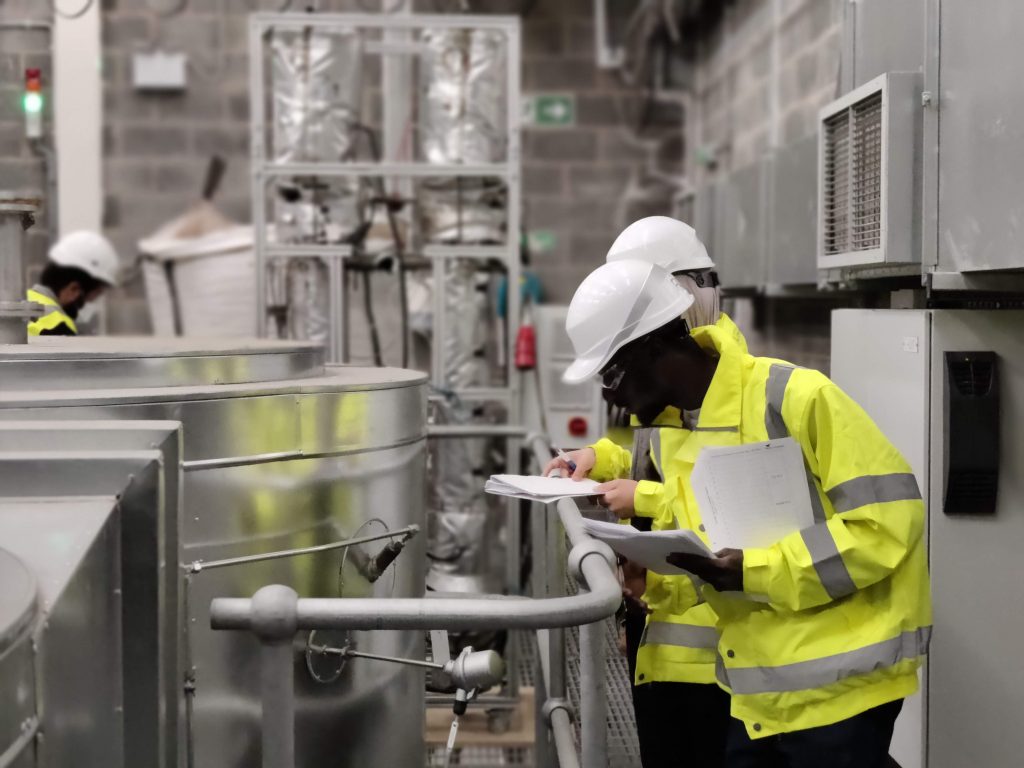Practical Process Engineering – reflections of three PhD students
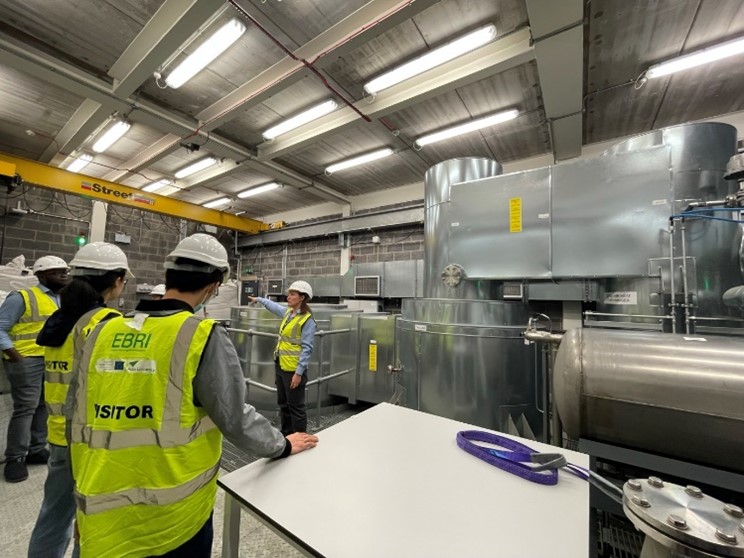
As a PhD student, I became eligible for a C-DICE subsidised place on the PPE technical training in June 2022. Taking place at EBRI – Energy & Bioproducts Research Institute, Aston University, the training provided an excellent opportunity to expand my knowledge of process engineering and enhance my mechanical, electrical and control system design skills.
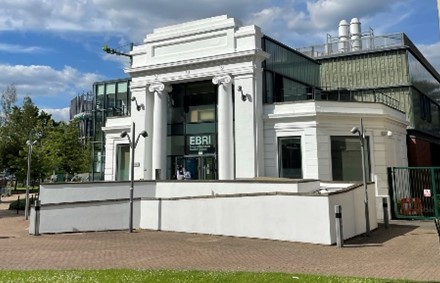
Having developed a bench-scale gasification rig during my PhD programme, it was exciting to visit this large-scale gasification plant and be introduced to scale-up challenges and techniques.
Led by an expert team, I was able to see the instrumentation, which helps to link theory with practice. This included key electrical components in industrial control systems, like this “relay”:
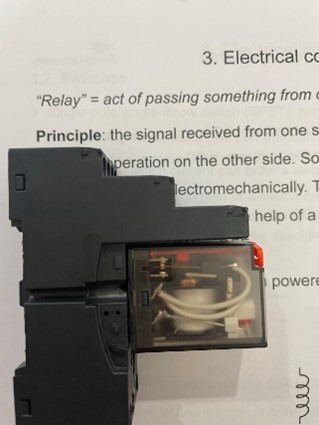
The best part of the course was the access to an actual plant to see the real components working. The schematics provided alongside this experience were informative and helpful.
A huge range of topics were covered, including: process plant implementation, documentation, bioenergy processes for combined heat and power generation, reading complex plant schematics and identification of components. I had the opportunity to learn about mechanical, control and electrical systems during the intensive four-day training programme.

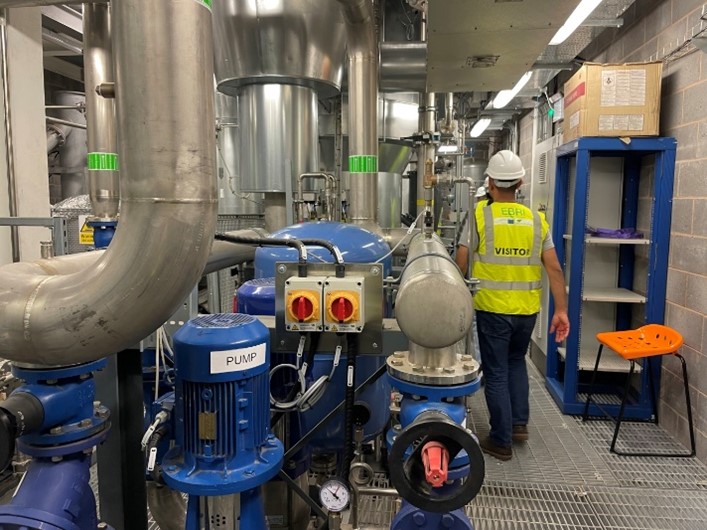
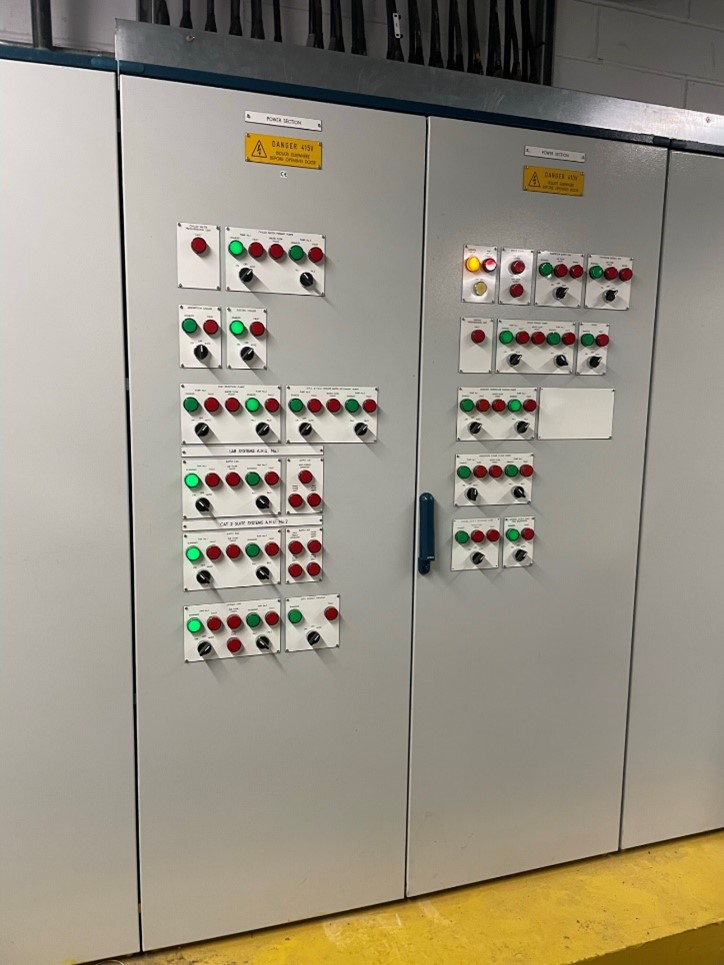
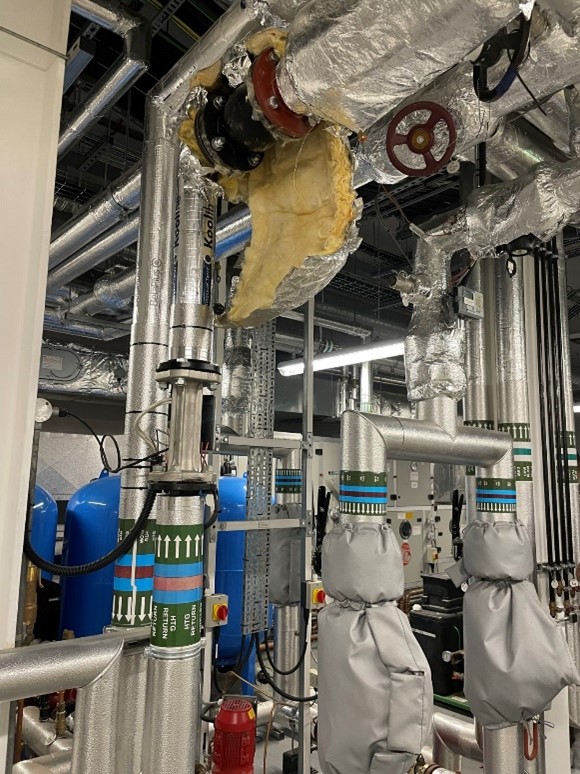
I strongly recommend this course to anyone planning to design a system and who wants to understand how it works. I have been awarded my iChemE approved certificate associated with this training and I only wish I had the opportunity to attend earlier in my PhD training journey!
Thanks to Clara Serrano as well as the experts who delivered the excellent lectures and practical sessions – Patricia Thornley, Dave Smith, Lee Jenkins, Steve Luke, Peter Francis, Tim Osgerby and Paul Taylor.
Lastly, a huge thanks to C-DICE for providing the fully subsidised place for us for the course.
Serap Ozman, PhD student, Cranfield University
My research on steam reforming processes, means that I am quite familiar with the process and instruments involved in power plants, but I have never operated them myself in a large-scale pilot plant before. Completing this course enabled me to obtain this invaluable hands-on experience. The combination of lectures, workshops and on-site demonstrations was well designed, so that we could link the diagrams/graphs with their actual configuration. Apart from reading process flow diagrams and piping and instrument diagrams, we also learned about electrical and control systems. Reading the diagrams and identifying different electrical components was initially challenging, but after completing the workshops and operating the system from the control room myself, I now feel confident when dealing with similar situations for my own rig.
Another benefit is the opportunity to connect with other researchers. Attendees of the course include PhD students, postdoctoral researchers, as well as people from industry with various academic backgrounds – health and safety, nuclear energy, pharmaceutical. We had the opportunity to chat and talk about our work/research during lunch and breaks, and it was very interesting to learn about what they are working on. Even for the same process, people from different backgrounds tend to have different focuses and ask questions regarding different aspects of the process. I find this particularly useful as it inspires me to review my project and experimental plans from a different point of view, and notice things that I have not considered previously.
Finally, I would like to thank C-DICE for their support, without which it would not be possible for me to attend this course. I highly recommend the PPE course to any researchers in the field of process engineering, especially early career researchers without much experience in pilot/industrial scale power plants, as this course will offer the knowledge you will need to better understand and develop your own projects.
Siqi Wang, PhD student, Cranfield University
This PPE course improved my confidence with my research project. It can feel daunting during PhD study, especially around the social outcomes, and the impact one’s research could make in the future. This training linked clearly to practical applications of our research, as the gasification plant provides heat and energy for the buildings locally. This course relates to my engineering and energy systems research and my aim to work in hydrogen production.
A huge benefit of this training is the opportunity to see the components and link the theoretical knowledge to the practical application on site. This helped to fill gaps in my knowledge. Another advantage is the opportunity I had to develop my drawing skills, which will be helpful for my research, moving forward.
Connecting with other institutes, researchers and experts in this field was amazing. I anticipate benefits in collaborating, between university and industry or research centre and consultancy, in the future.
Finally, I appreciate the opportunity of training offered by C-DICE, and I would highly recommended attending the future session of the PPE/technical training courses, which are be organised several times a year. It is an excellent practical training opportunity for researchers in the field of process engineering.
Ziqi Shen, PhD student, Cranfield University
